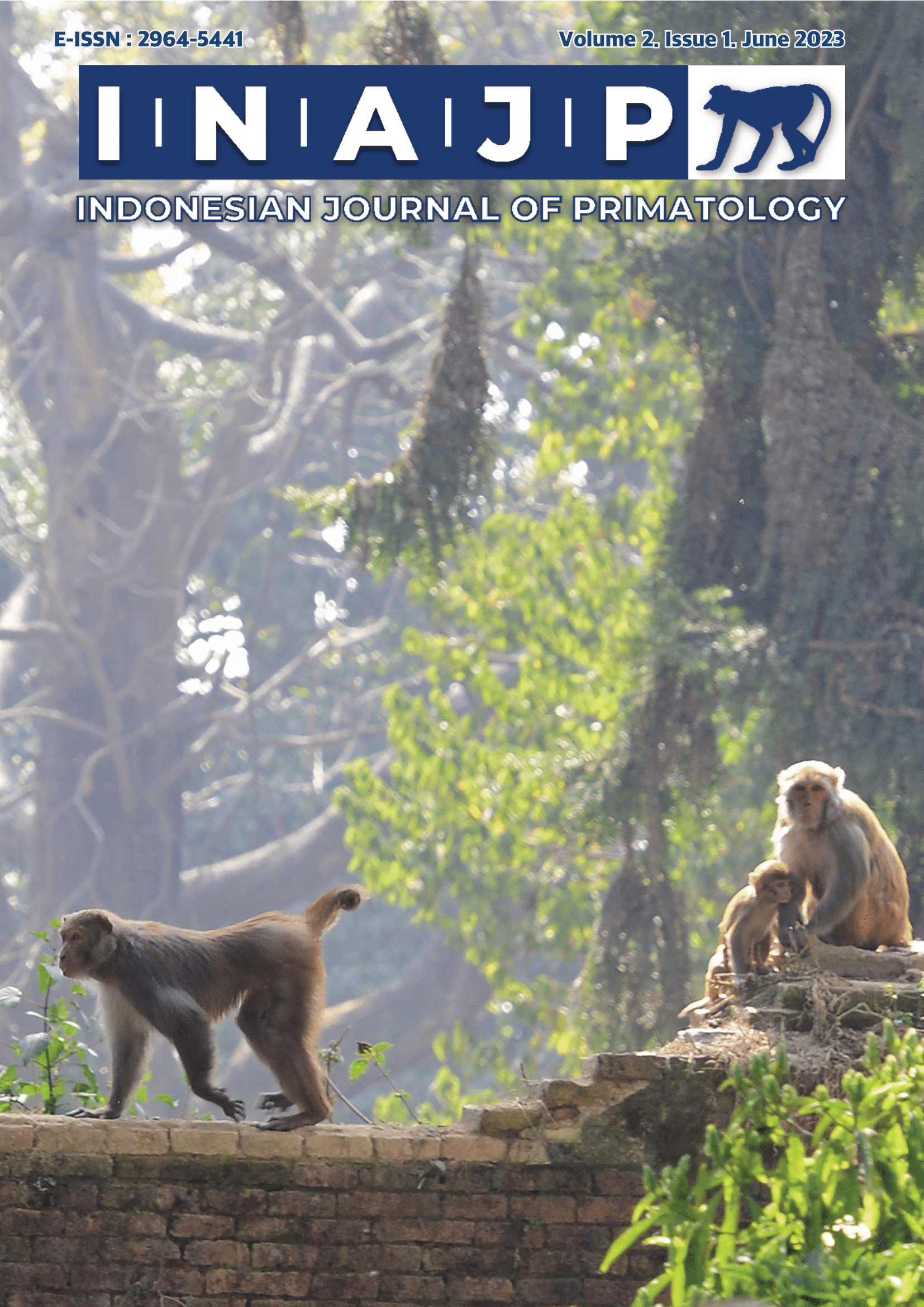Pilot Study on Food-processing Behaviour by Males Long-tailed Macaques on Tinjil Island, Indonesia
Abstract
Non-Human Primates (NHP) have a slow life history compared to other mammals due to their complex brain growth. Brain complexity correlates with behaviour complexity, especially feeding behaviour, which enables primates to have the capability in leaf processing step, tool use, or even food washing. Macaca fascicularis on Tinjil Island is one of the NHP species conducting food-cleaning behaviour. Thus, this study aims to figure out the food-cleaning behaviour differences across the age classes of juvenile and male long-tailed macaques (LTM). The feeding behaviour of two age classes of male LTM through 3 different types of food processing was analysed using focal animal sampling and instantaneous recording methods. Then, the data were statistically analysed using Mann-Whitney and Kruskal-Wallis. We found that both age classes used Step 1 of the processing food type more than other types. Analysis within each age class showed different results that juvenile male LTM had a higher frequency of Step 0 and lower frequency of Step 1 than adult male LTM and vice versa. The result indicates no significant differences in the three food type processing between juvenile and adult male LTM.
Copyright (c) 2023 Indonesian Journal of Primatology

This work is licensed under a Creative Commons Attribution-NonCommercial 4.0 International License.
As our aim is to disseminate original research articles, hence publishing rights is necessary. The publishing right is needed in order to reach an agreement between the author and publisher. As the journal is fully open access, the authors will sign an exclusive license agreement, where authors have copyright but license exclusive publishing rights in their article to the publisher. The authors have the right to:
- Share their article in the same ways permitted to third parties under the relevant user license.
- Retain patent, trademark, and other intellectual property rights including research data.
- Proper attribution and credit for the published work.
For the open access article, the publisher is granted the following rights.
- The exclusive right to publish the article, and grant rights to others, including for commercial purposes.
- For the published article, the publisher applied for the Creative Commons Attribution-NonCommercial-ShareAlike 4.0 International License.

This work is licensed under a Creative Commons Attribution-ShareAlike 4.0 International License.















